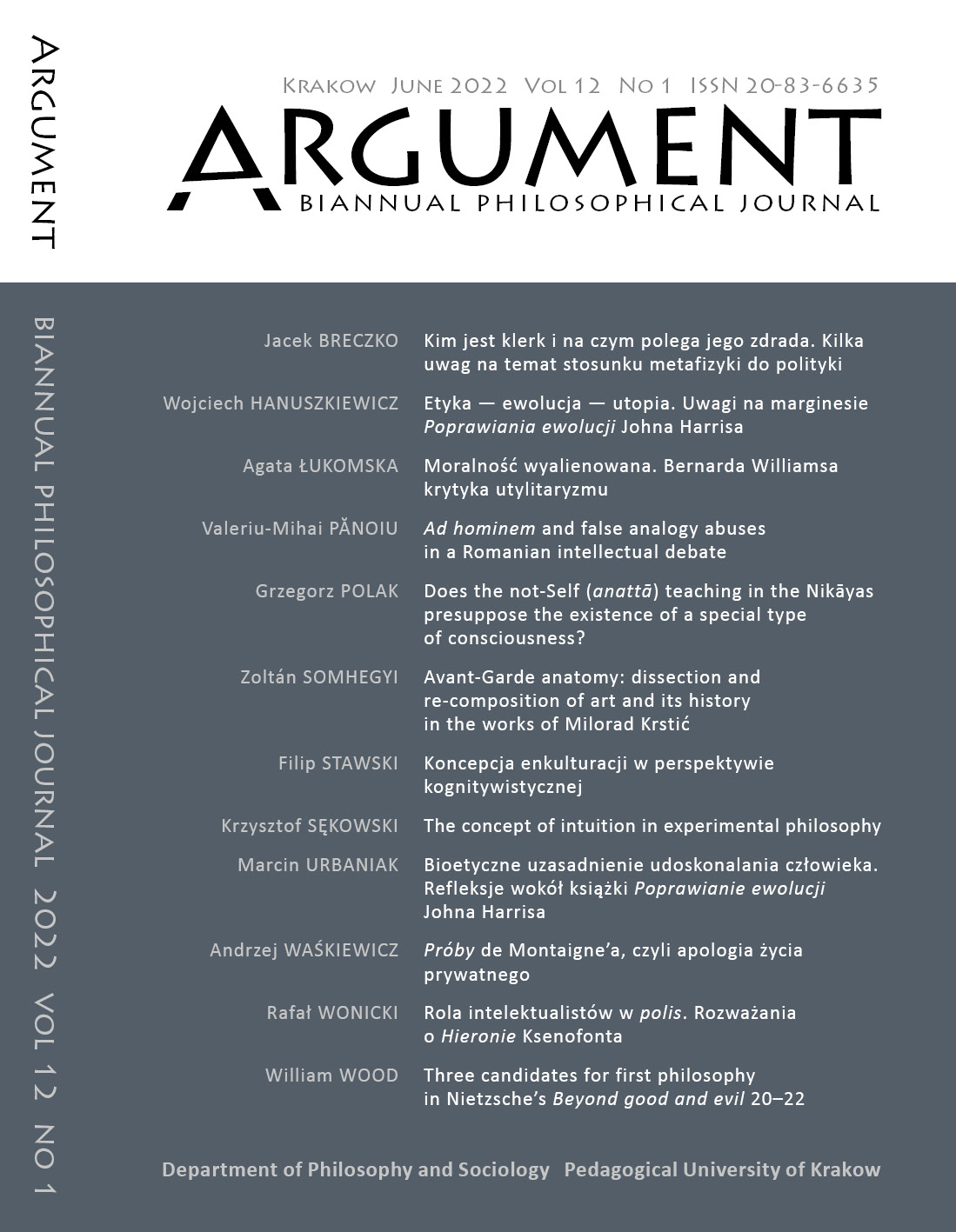Three candidates for first philosophy in Nietzsche’s Beyond good and evil 20–22
DOI:
https://doi.org/10.24917/20841043.12.1.09Słowa kluczowe:
continental philosophy, post-Kantian philosophy, metaphysics, philosophy of religionAbstrakt
Friedrich Nietzsche is not generally regarded as a “first philosopher”, but rather as a radical critic of the traditional aspiration of philosophy to be a “master science”, in relation to which the other sciences are subordinate or dependent. In this respect, he seems to have had more in common with the logical positivists and post-structuralists who came after him than with the whole galaxy of “first philosophers” who preceded him, from Aristotle and John Duns Scotus to René Descartes, Immanuel Kant and Georg Wilhelm Friedrich Hegel. However, in a famous aphorism in Beyond good and evil, Nietzsche proposes that psychology ought to be recognised as “queen of the sciences”, a traditional formula for first philosophy. Although this passage is well known, it is more often taken as a rhetorical flourish than as a serious statement of intent. In this article, I focus on the three aphorisms (BGE 20-22) that lead up to this statement. I argue that these aphorisms form an interconnected sequence, in which Nietzsche considers and rejects three traditional candidates for first philosophy — cosmology (BGE 20), theology (BGE 21) and general ontology (BGE 22). By rejecting these traditional candidates for first philosophy one by one, this sequence clears the way for Nietzsche’s proposal in BGE 23 that psychology ought to be recognised as the true candidate for first philosophy. These aphorisms, then, form a crucial sub-section in the developing argument of the book as a whole, which is far more systematically organised than Nietzsche’s aphoristic manner of writing would appear to suggest.


